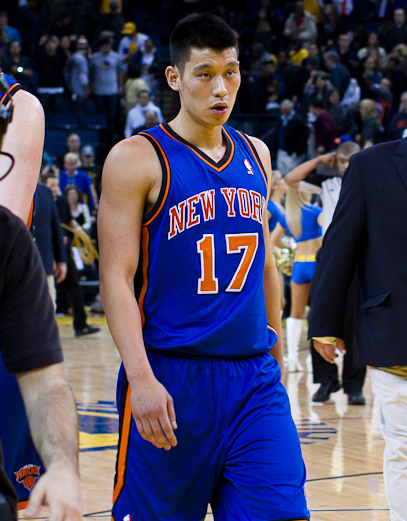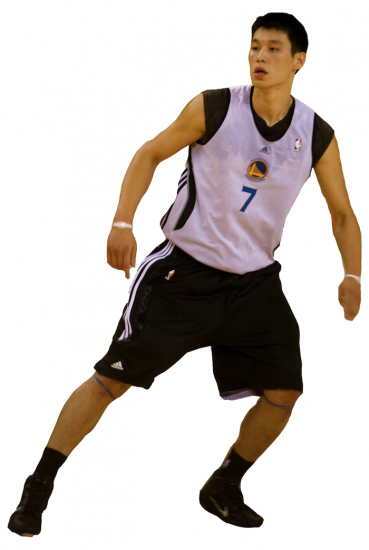Let’s be up front about something: I don’t really like basketball. While it’s always exciting to see clips of Lebron James or Blake Griffin throwing down on some poor, unsuspecting chump, I’ve never been one to sit down and digest an entire basketball game. To be honest, this season in particular has been one I’ve been unable to follow. The 2011 NBA lockout, a prolonged and frustrating fight between millionaires and billionaires that turned me off of basketball for a while, plus my widening workload has led to me hardly being able to tell you anything about what has happened in the NBA this year.
So you might be wondering what on earth I am doing writing about Jeremy Lin, the un-drafted, Asian-American, evangelical, Harvard-educated ballplayer who has taken the New York Knicks, the NBA and the country on the unprecedented ride of a lifetime since he made his first career start earlier this month. If there is one thing I can tell you about this NBA season, it’s Linsanity. In the past two weeks I’ve read more stories in the sports section than I have all year, spent countless hours watching Lin highlights on YouTube instead of doing homework and even looked dutifully for Knicks coverage as if I was from Manhattan instead of rural Maine.
What this all adds up to is that I’ve been paying attention to a sport that I had no reason to pay attention to before and, unless you’ve been living in a coma for most of February, you probably have been, too.
While writers and media outlets have been attempting to skirt around the issue of Lin’s race, especially in the wake of ESPN.com’s “Chink In The Armor” piece and other racially insensitive headlines like “Amasian!” in the New York Post, some of which have cost jobs and led to suspensions, it’s impossible to deny that much of the hype can be attributed to Lin’s heritage. Lin is one of few Asian-American players in NBA history, and the first to ever to create such a cultural ripple.
On February 13, African-American Boxer Floyd Mayweather, Jr., who is known for making controversial statements, sent out a tweet that said the following: “Jeremy Lin is a good player but all the hype is because he’s Asian. Black players do what he does every night and don’t get the same praise.” In response, Mayweather has been accused of racism from a number of outlets. It’s obvious that the American sports landscape and media at large has yet to fully learn how to handle issues of race.
On one front, the attention to race is legitimate. Simply noticing race does not equal racism, and it’s true that Lin’s race is indeed compelling in a sports league where upwards of seventy-five percent of players are black. However, in another way the coverage is downright uncomfortable. It’s true that Lin has received a great deal of media attention for other reasons. Not only did he graduate with a degree in economics from Harvard, but his meteoric rise to star player of theNew York Knicks came seemingly out of nowhere. Despite this, no matter where you look, his race is at the forefront.
The NBA, more than any other professional sports league in America, is applauded for its diversity, but the popularity surge of Jeremy Lin has exposed some uneasy truths. Mayweather’s comment may have been candid and a little insensitive, but it strikes at the heart of some of the issues, at least in regard to Lin’s own heritage. Even Lin himself talked about the pressures to sustain his performance as an Asian-American basketball player, saying in an ESPN interview, “You can’t prove yourself one time. You can’t have one good game and have everyone be, you know, ‘He’s the real deal.’ It has to be over and over and over again.”
It would be nice if this weren’t the case. It would be nice if Jeremy Lin could be rocketed into superstardom solely on his talent and the non-racial aspects of his underdog story, but this is wishful thinking. For the time being, Jeremy Lin is alone in carrying the torch for Asian-American basketball players. While this is no small task, there is hope that if he endures the pressure to succeed, future media coverage will become more normalized not only for Asian athletes, but also for athletes of all backgrounds. While the dust settles, it’s important to remember the primary reason for all the Linsanity in the first place: because Jeremy Lin, despite all the naysayers, is a damn good basketball player who has revived the NBA in the eyes of some, like me, who had lost faith. That alone should earn him some credit. •











